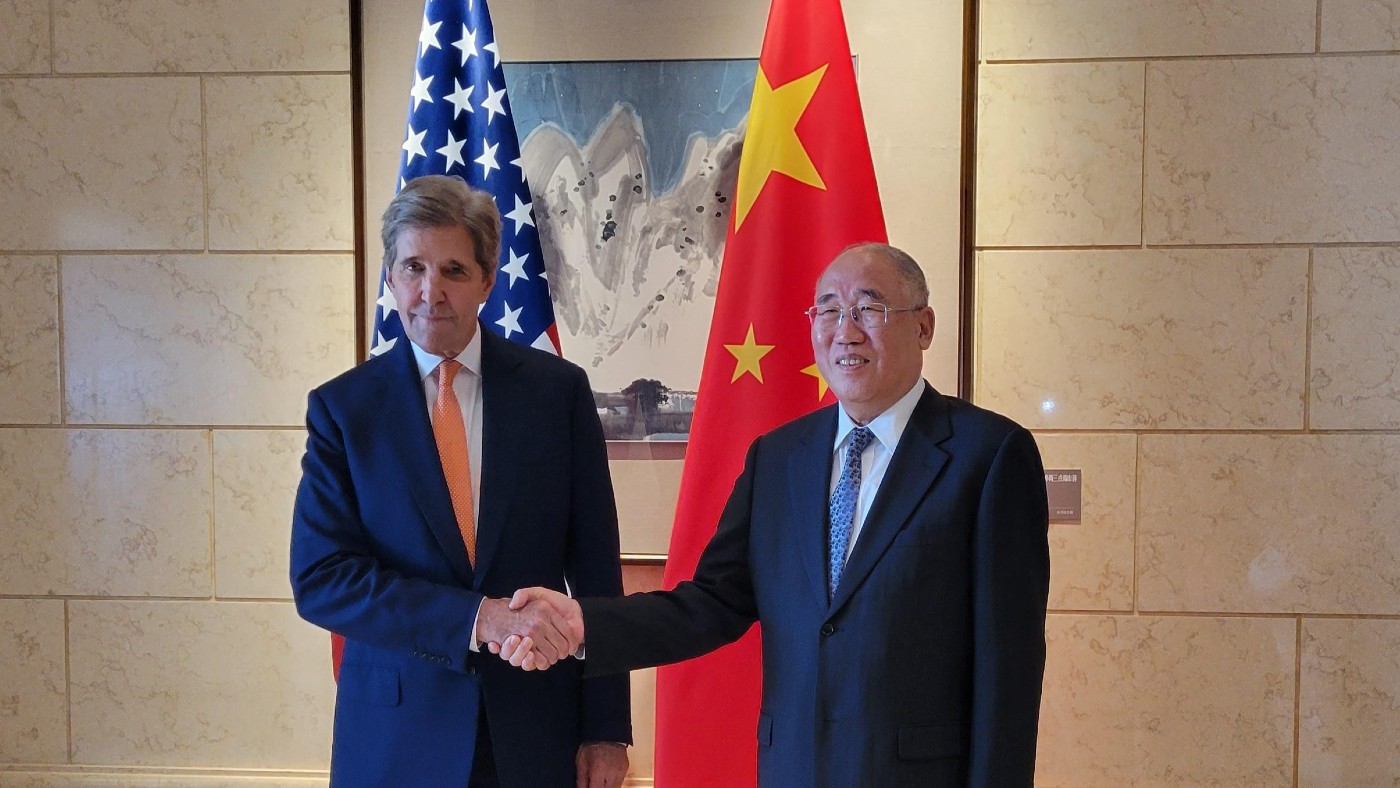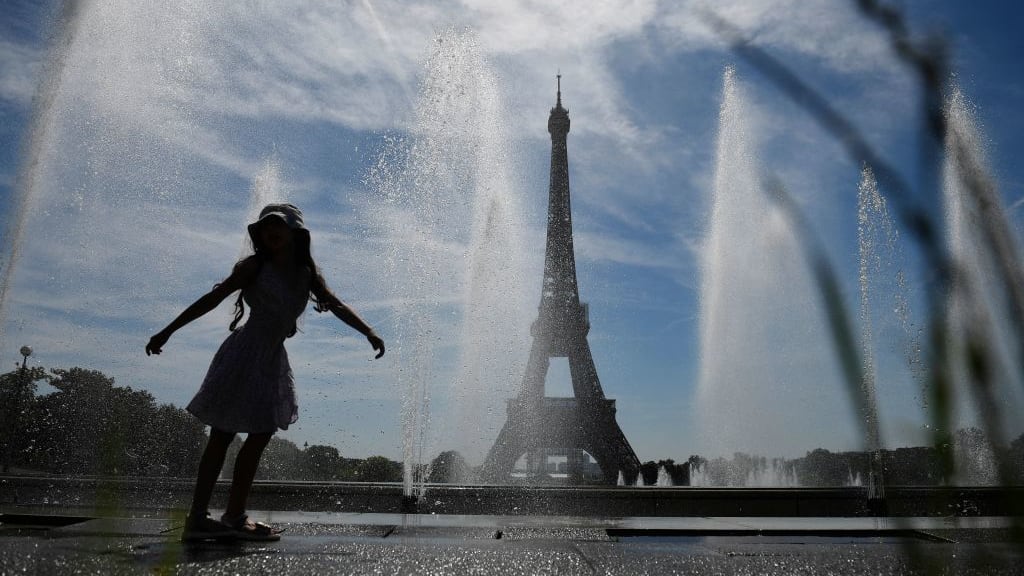‘Olympic athletes made this monumental gamble worthwhile’
Your digest of analysis and commentary from the British and international press

A free daily email with the biggest news stories of the day – and the best features from TheWeek.com
You are now subscribed
Your newsletter sign-up was successful
1. So, were the Olympics worth it?
Oliver Brown in The Telegraph
on stirring sportsmanship
“The temptation in wrapping up any Olympics is to be triumphalist, to suggest that every doubt was confounded, that every bureaucratic nightmare was justified by the glorious sport,” says Oliver Brown in The Telegraph. “But in Tokyo 2020’s case, this feels glib.” Citizens who were unable to witness the Games in the flesh owing to Covid restrictions might be ambivalent about its success. But the International Olympic Committee calculate that “local inconvenience is offset by the worldwide exposure”, Brown continues. They understand that “all it takes is one moment of wonder, one illustration of stirring sportsmanship”, for “cynicism to be doused”. While “troubled and deeply imperfect”, this year’s Olympics was “delivered for the sake of athletes who otherwise risked never having their chance to fulfil their talents”, Brown writes. And “how handsomely they have repaid the faith. It is to them, and to the endless forbearance of Tokyo hosts shut out of their own jamboree, that the greatest debt of gratitude is owed. For it was they who made a monumental gamble worthwhile.”
The Week
Escape your echo chamber. Get the facts behind the news, plus analysis from multiple perspectives.

Sign up for The Week's Free Newsletters
From our morning news briefing to a weekly Good News Newsletter, get the best of The Week delivered directly to your inbox.
From our morning news briefing to a weekly Good News Newsletter, get the best of The Week delivered directly to your inbox.
2. Boris Johnson vs. Rishi Sunak: neighbours at war
The Times editorial board
on the row in Downing Street
“It was only a matter of time,” says The Times editorial board on reports that Boris Johnson suggested demoting Rishi Sunak amid growing friction between No. 10 and No. 11. And “there is a risk that the tension could build” further, as the PM wants to “level up” the country, while the chancellor knows that this is “often code for spending money” and believes that fiscal discipline is needed. “These arguments are not new or surprising,” says The Times. All the same, when David Cameron had the top job, he managed to avoid the sort of rows like those between Tony Blair and Gordon Brown by installing his “close friend and philosophically kindred spirit” George Osborne in the Treasury. But “Mr Johnson would struggle to repeat that feat, because he has few close friends and proudly eschews any political philosophy,” according to the paper. “Thankfully, relations have not deteriorated to the lows of the New Labour psychodrama yet. It would be wise to repair them.”
A free daily email with the biggest news stories of the day – and the best features from TheWeek.com
3. Harder borders are a legacy of Covid we should reject
Nesrine Malik in The Guardian
on long-term separation
Nesrine Malik argues that “border closures, strict and expensive quarantine rules, and costly airline tickets have effectively trapped millions since the beginning of the pandemic”. The result is a “global loss of life milestones - weddings, births, graduations”, she writes in The Guardian. “Also lost are the little things that accumulate into heavy burdens - the first steps of a first grandchild, the bloom of a new relationship frozen by distance at the start of the pandemic.” Attempting to meet all the Covid requirements to travel “feels like playing snakes and ladders - one right move will advance you another few steps, and one wrong move sends you hurtling back to square one”. Malik fears that “lumbering” border regimes have “relegated the human toll of separation to the bottom of government priority lists”. She concludes: “With this inbuilt inertia, another threat looms - separation without end.”
4. Anti-vax insanity
Charles M. Blow in The New York Times
on Covid conspiracies
Nothing better exemplifies the gaping political divide in the US “than our embarrassing and asinine vaccine response”, writes Charles M. Blow in The New York Times. “Donald Trump’s scorched earth political strategy has fooled millions of Americans into flirting with death. And now thousands are once again dying for it.” Like mask wearing and social distancing, receiving a coronavirus vaccine, for far too many, has become a political statement, Blow argues. “Why were Americans turning away a vaccine that many people in other parts of the world were literally dying for? Many did so because of their fidelity to the lie and their fidelity to the liar.” So we have a situation where “people are dying and will continue to die of ignorance and stubbornness”. These people “are determined to prove that they are right, even if it puts them on the wrong side of a eulogy”.
5. This is the year when pledges on climate must be turned into action - delay is not an option
Caroline Lucas for The Independent
on IPCC’s landmark report
French author Victor Hugo wrote: “It is a sad thing to think that nature speaks and mankind does not listen.” Now, 150 years later, “nature is no longer speaking to us - it is shouting. And governments still aren’t listening,” warns Green Party MP Caroline Lucas in The Independent. With fewer than 100 days until the Cop26 UN climate conference in Glasgow, the Intergovernmental Panel on Climate Change (IPCC) has published a “terrifyingly stark” reminder of why world leaders need to do far more than their current plans, she writes. “It shows that the impacts of human activity on the climate are accelerating, whether they be extreme weather events, melting ice caps or sea level rise.” With a “huge amount of catching up to do”, it is “actions, not words, which will set the tone in Glasgow”, says Lucas, “not stale boasts and more targets”.
-
 Can the UK take any more rain?
Can the UK take any more rain?Today’s Big Question An Atlantic jet stream is ‘stuck’ over British skies, leading to ‘biblical’ downpours and more than 40 consecutive days of rain in some areas
-
 The UK expands its Hong Kong visa scheme
The UK expands its Hong Kong visa schemeThe Explainer Around 26,000 additional arrivals expected in the UK as government widens eligibility in response to crackdown on rights in former colony
-
 One great cookbook: Joshua McFadden’s ‘Six Seasons of Pasta’
One great cookbook: Joshua McFadden’s ‘Six Seasons of Pasta’the week recommends The pasta you know and love. But ever so much better.
-
 Woman accidentally puts nan in washing machine
Woman accidentally puts nan in washing machineTall Tales And other stories from the stranger side of life
-
 ‘Irony’ as Zoom calls staff back to office
‘Irony’ as Zoom calls staff back to officefeature And other stories from the stranger side of life
-
 Bangladesh dealing with worst dengue fever outbreak on record
Bangladesh dealing with worst dengue fever outbreak on recordSpeed Read
-
 Glacial outburst flooding in Juneau destroys homes
Glacial outburst flooding in Juneau destroys homesSpeed Read
-
 The U.S. veterinarian shortage crisis
The U.S. veterinarian shortage crisisSpeed Read With an anticipated shortage of 15,000 vets by 2030, it will be harder to get care for pets
-
 John Kerry in Beijing: how red China is turning green
John Kerry in Beijing: how red China is turning greenfeature Climate talks set to resume between Washington and Beijing this week
-
 Study: Nearly 62,000 people died in 2022 European heatwave
Study: Nearly 62,000 people died in 2022 European heatwaveSpeed Read
-
 Company teaches mask-wearers to smile again
Company teaches mask-wearers to smile againfeature And other stories from the stranger side of life